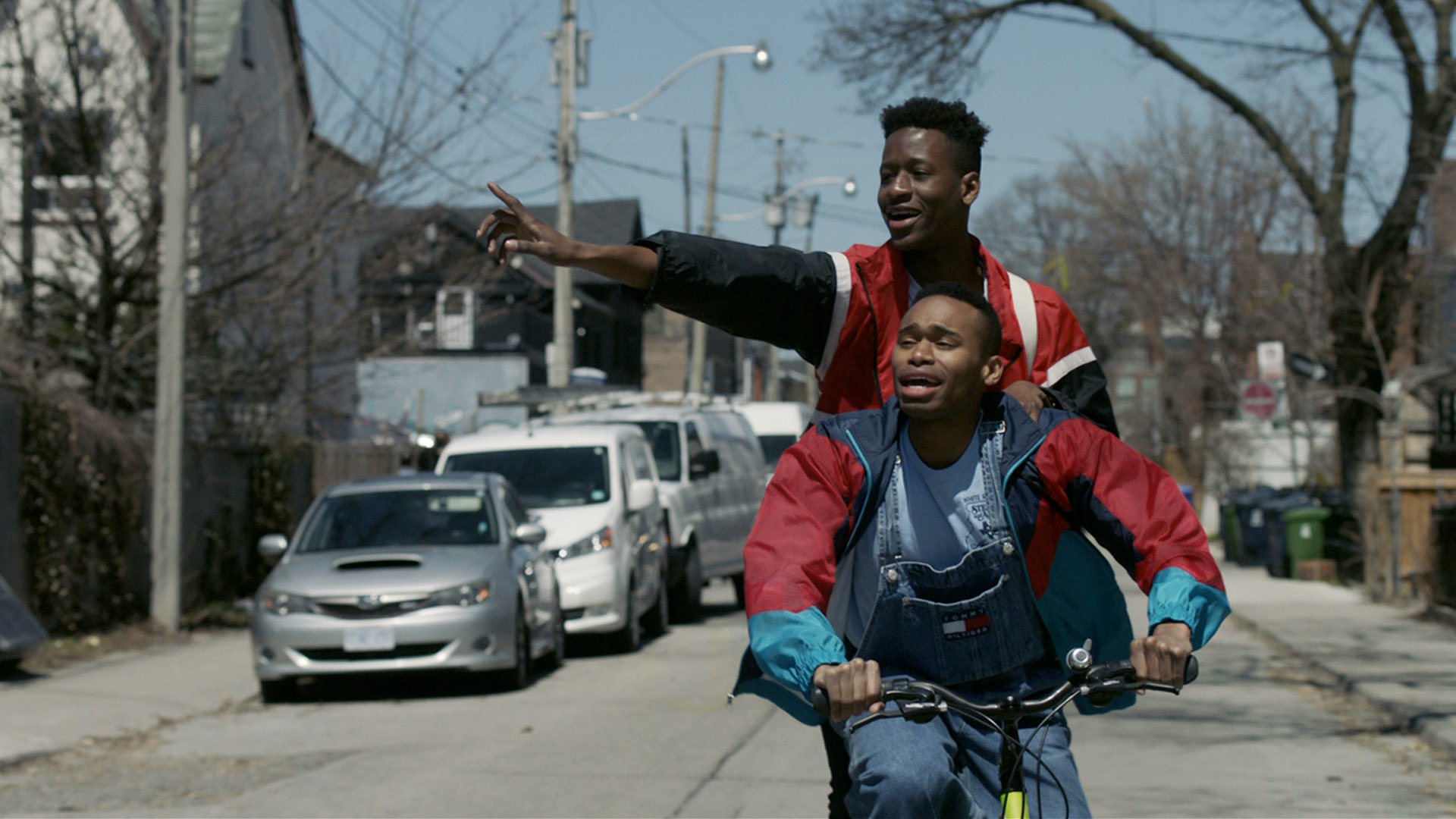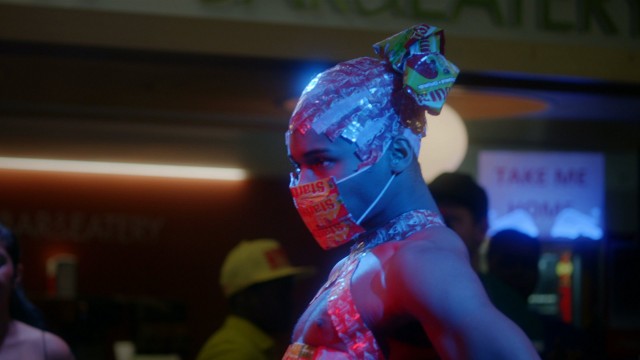
Aiming to create a story that "diversifies the people and stories we see in queer cinema", Joseph Amenta's Haus is a tale of friendship, family and community. Inviting its audience into the safe space of the Kiki Ballroom scene, this 14-minute short is the director's way of highlighting "what queer people will do in order to live their authentic life".
"This film is inspired by a world that I inhabit, a queer safe space that is complex and diverse"
Centred around Makai, a young homeless boy, Haus follows its protagonist, and friend Trevon, as they prepare for a night of competition at a local Kiki Ball. Over the course of the day, Makai must face the hostilities of both his biological family and strangers and (literally) fight to protect those he loves (including himself). It's a simple but effective storyline and one that was inspired by personal experience for Amenta, who reveals that "as a queer person from an immigrant family, I too have taken refuge in the Kiki Ballroom scene, and am proud to tell a story within this cultural underbelly".
To ensure the authenticity of the film Amenta spent months immersed in the Kiki Ballroom scene and its community, gaining the trust of this often marginalized group. "This film is inspired by a world that I inhabit, a queer safe space that is complex and diverse", the director explains. Adding that they "wanted to tell a story about the friendships that persist in these spaces and how they often take the place of biological families. We support each other, and we live lives on the fringes of society, celebrating every step of the way."

"We shot the film on an Alexa Mini, with Cooke lenses, and some old sound equipment" – Amenta on the production of Haus
It was during this time within the scene that Amenta met James Baley and Mark-Ché Devonish, who would become the film's lead characters. Their existing relationship became the foundations for the short's narrative and the pair would work with the director in order to shape the dialogue and script in a genuine manner. Capturing an accurate portrayal of this community was obviously vital to Amenta and there's an almost docu-drama feel to Haus at times which is totally enveloping. Although there are some darker moments in the short – Makai's interaction with his brother and the abuse he receives from a stranger – ultimately this isn't a film solely interested in the hardships these individuals face because of others, instead, the takeaway is more targeted at the warmth and support they receive from the community around them.
Made with an intimate crew, it took around 18-months – from development to premiere – for Amenta to complete Haus. The film had an impressive festival run, screening at Clermont-Ferrand (where it was one of three Canadian shorts films in the festival that year, the other two went on to be Acadamy Award nominees) and on the back of that success, the director was able to secure funding for their debut feature, which should hit the festival circuit later this year.